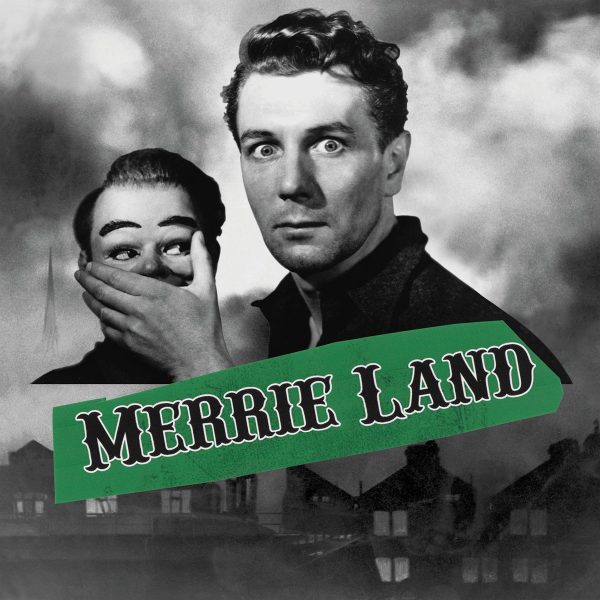When Damon Albarn first went for the full English in the early 90s it was a beautiful thing. In the space of a couple of albums, he effectively re-established a Village Green Preservation Society for Generation X. For Tomorrow was our Waterloo Sunset, Parklife the 90s equivalent of a knees-up round the old joanna.
Quarter of a century on, that “cor blimey, luv a duck” vision of England has been sullied, at least for many of Albarn’s fanbase, not only by Brexit and the more jingoistic St George wavers, but by embarrassment at what Britpop and Cool Britannia came to represent.
Albarn himself moved on sharpish of course. The new millennium has seen him embrace Chinese opera, Malian pop and American hip-hop. Yet English melancholia has never quite deserted him, nor he it. He still calls in from time to time – in 2012 on the gorgeous Under The Westway, and now on this, the second album from this previously presumed one-off supergroup. And boy, what a time it is to be English!
Leaden skies hang heavy over this Merrie Land, brought in on a Brexit cold front. But while this album is a state of the nation address of sorts, it’s indirect and subtle. Nothing as crass or try-hard as a straight political rant here. Albarn’s a portrait painter, not an activist, and the detached, observer’s eye he employed in his Parklife days serves him well again. You might venture an easy guess at his politics, but he’s too much of an artist to shovel it on thick.
Instead he reaches for signifiers of an earlier, richer – indeed merrier – Britain, tripping pleasant memories while dispatching missives of gloom. Like Radiohead going Trumpton for their video for Burn The Witch, Albarn has searched out olde worlde treasures that aren’t tainted by association. On Gun To The Head it’s Tudor recorders, pootling bassoon, a nod to the grand crescendo finale of The Beatles’ A Day In The Life. On The Truce of Twilight it’s a cheeky mid-century cartoon sound effect. For the visuals, it’s old ventriloquist dummies. And reminding us that once upon a time Britain wasn’t purely Greater England, there’s a Welsh male voice choir on Lady Boston that warms the cockles.
Yet all the while, there’s an abandoned funfair, Ghost Town-y sense of dread to proceedings – the title track lopes along sadly like a wound-down music box, Nineteen Seventeen wobbles around like the floorboards of a Haunted House, The Great Fire skips along on Scooby Doo-ey Ghost Train sound effects. Then, just as it all gets too claustrophobic, Lady Boston lets in a chink of sunlight and the chirpy folk motif of Drifters and Trawlers further brightens the horizon.
The lyrics tell a sorry tale of a damp, pathetic, insular Britain, be it “curtain twitchers” on The Truce of Twilight, a “Silver Jubilee mug” on Merrie Land, NIMBYish small officialdom notices on Gun To The Head. All are delivered with a certain sense of detachment – it’s an album of engaged observation, rather than personal griping. Even the most direct address to the country’s predicament, The Last Man To Leave, balances its stance-taking (“I’m taking it personally / I’ve got to rewrite / The story that they flaunted around and hoiked us all”) with journalistic scene setting (“The manicured lawns of England / Barricaded in the fifties / Wake up to the blackbird / The radio and the bacon”). The album struggles with itself, unable to shake a lingering affection for things that now seem symptomatic of the country’s malaise.
Often he plays loose and free-form with his lyrics. Metre battles music and lines barely squeeze their way in. It’s the continuation of a style he employed on Under The Westway and was toying with as far back as Essex Dogs – prose poems over music rather than simple rhyming verse. It heightens the contemplative tone. Though the Englishness of Merrie Land may recall Parklife, it couldn’t be further from that album’s pop thrills. Its closest sibling in Albarn’s canon is his solo Everyday Robots – another slow-burner of downbeat beauty. Merrie Land is a rainy day of an album – it’s mopey and fidgety, and full of the sad nostalgia of getting a box of old board games down from the loft to keep yourself entertained.
It’s quite the feat for a man who’s spent the last two Gorillaz albums making like an R&B producer to switch so readily back into English chronicler mode. Then again, we’re long used to Albarn’s versatility, and we are in a time of crisis. He needed to do this. England expects. And Albarn delivers.
